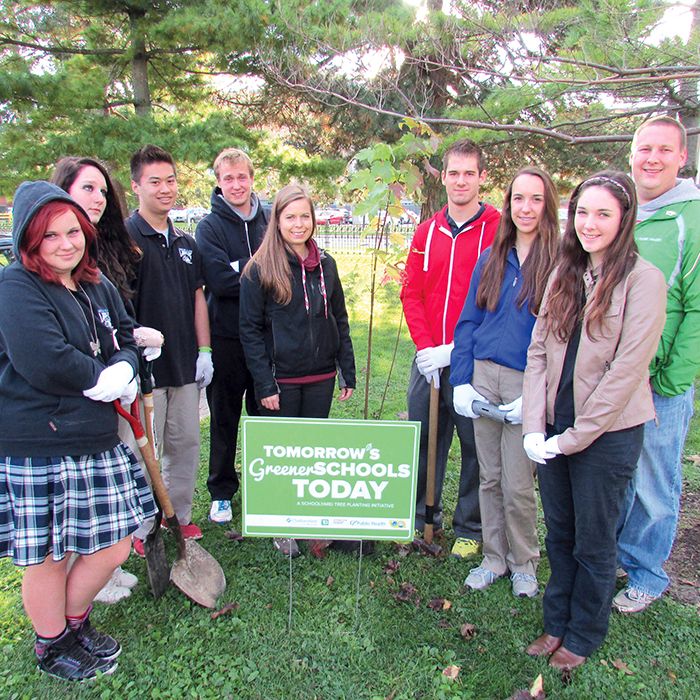
To counter the disappearance of trees in Chatham-Kent, a new partnership has formed to plant Carolinian native species at area schools.
The Chatham-Kent Public Health Unit and Lower Thames Valley Conservation Authority have partnered, with grant money from the TD Friends of the Environment Foundation, to plant 70 trees at participating schools in Chatham-Kent.
Dan Drouillard, public health nurse, and Kelly Johnson, Community Trees Initiative co-ordinator were at Ursuline College Oct. 22 for the first planting with students from the Environmental Specialist High Skills program.
UCC science teacher Chantal Lucarelli asked the students to help plant the trees and said the program is set up as a graduating course to meet the needs of kids interested in a career in the environmental sector.
According to Drouillard, the recent news items about clear-cutting of trees in the area made him think about the need to ensure native species trees are strong in our area, and schoolyards were a good place to start.
“There are many positive environmental and health benefits that trees provide,” Drouillard said. “Schoolyards, many of which are barren, are the perfect place to start. Mature trees provide much-needed shade in schoolyards and give kids a place to play out of the sun.”
After applying for and receiving the grant, Drouillard sent an application to the Catholic and public school boards, with eight schools signing up for the initiative. Other schools taking part in the planting initiative are St. Agnes, Monsignor Uyen, and Victor Lauriston in Chatham, St. Anne, Harwich-Raleigh and W.J. Baird in Blenheim, and Lambton-Kent Composite in Dresden.
Johnson said the Carolinian life zone, which stretches from Point Pelee to Toronto, is unique to Canada with many at-risk species. She was on hand at Ursuline College to show the students the proper way to plant a tree and educate them on native species.
Red Maple was the tree of choice at The Pines, but Johnson said they are many other species unique to the area, such as burr oak, tulip tree and serviceberry.
A full list of trees native to Chatham-Kent can be found at the conservation authority website
, along with advice on which trees not to plant because they have become an invasive problem and disrupt local ecosystems.






